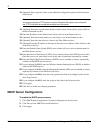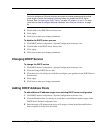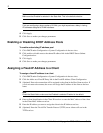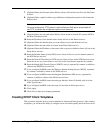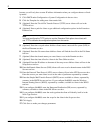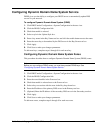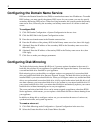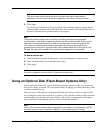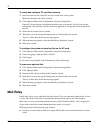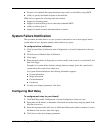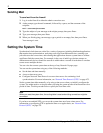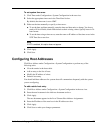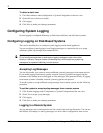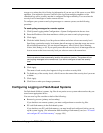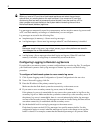
3
156 Nokia Network Voyager for IPSO 4.0 Reference Guide
To install and configure PC card flash memory
1. Insert the card into one of the PC card slots in the front of the system.
Make sure that the card is fully inserted.
2. Click Optional Disk under Configuration >System Configuration.
Network Voyager displays information about the card you inserted. If you do not see this
information, verify that the card has at least one gigabyte of storage and is fully inserted into
the slot.
3. Select the card in the Choose column.
4. Wait until you see a message indicating that you should reboot the system.
There is a short delay before the message appears.
5. When the message appears, click the link Reboot, Shutdown System.
6. Reboot the system.
To configure the system to store log files on the PC card
1. Click Optional Disk under Configuration >System Configuration.
2. Next to Logging to Optional Disk, click On.
3. Click Apply.
If you want to stop using PC card flash memory, follow these steps:
To remove an optional disk
1. Click Optional Disk under Configuration >System Configuration.
2. Click Optional Disk.
3. Deactivate the card by clicking in the Unselect column.
4. Wait until you see a message indicating that you should reboot the system.
There is a short delay before the message appears.
5. When the message appears, click the link Reboot, Shutdown System.
6. Reboot the system.
Mail Relay
Email relay allows you to send email from the firewall. You can send email interactively or from
a script. The email is relayed to a mail hub that then sends the email to the final recipient.
Mail relay is used as an alerting mechanism when a Check Point FireWall-1 rule is triggered. It
is also used to email the system administrator the results of cron jobs.
IPSO supports the following mail relay features:
Presence of a mail client or Mail User Agent (MUA) that can be used interactively or from a
script



